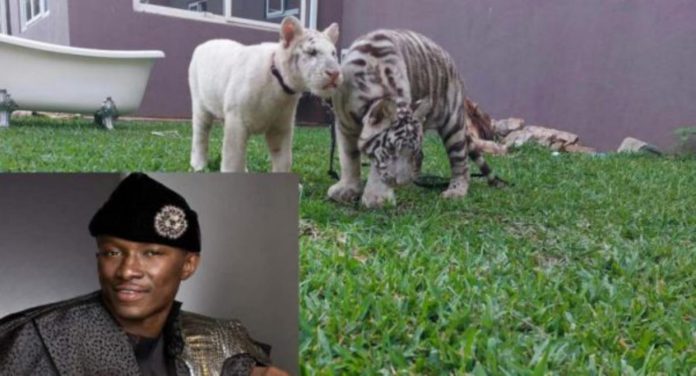Director of Operations at the Wildlife Division of the Forestry Commission, Luri Kanton has said that the relocation of the two tigers in a residential estate at Ridge in Osu, Accra would take about two months to be fully completed.
He also added that the animals, which belong to business mogul, Nana Kwame Bediako, popularly known as Freedom Jacob Caesar, pose no threats to the life of residents in the estate where the animals are currently being kept.
Some residents had expressed worry over the presence of the tigers in the estate, claiming that their presence made life unsafe for them, adding that all efforts to get the owner or the management of the facility to evacuate the animals had proven difficult.
The Accra Regional Command of the Ghana Police Service issued a statement on Thursday, May 19, 2022 in which it indicated that it had “reached out” to the Wildlife Division of the Forestry Commission to relocate the two animals to “an appropriate facility.”
Officials from the Wildlife Division subsequently visited the estate on Friday May 20, 2022 to inspect the facility and assess the situation.
Leading the delegation, Luri Kanton, Director of Operations shortly after the inspection acknowledged that “a new structure would have to be constructed at a new location before the relocation of the animals could be done.”
This, he stressed, would take about two months to be completed.
On the safety of residents, he claimed that the tigers were well protected enough and that they would be relocated after investigations.
Owner of the tigers, Mr. Bediako on his part, had in an interview with journalists, admitted that indeed he had two tigers in his estate and that he brought them in a bid to boost Ghana’s tourism sector.
“First, it is right, I have two tigers that I bought in a bid between Ghana and Dubai…
“I went in to buy these animals to add to the value of tourism in our country. I wanted to go into the Safari world by making sure that Ghana becomes the first country in the whole of West Africa, East Africa, and Central Africa, except for South Africa, to have these animals”, he explained.

